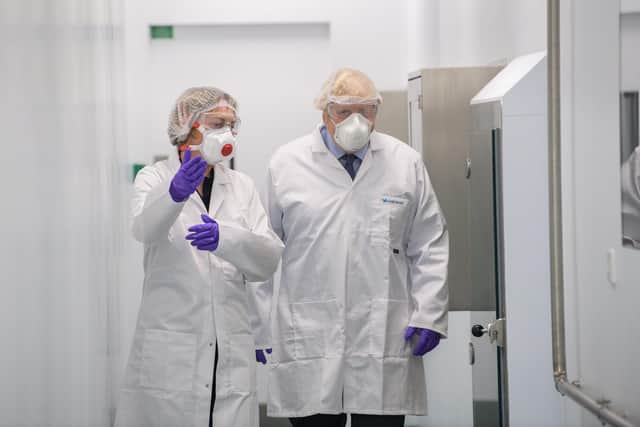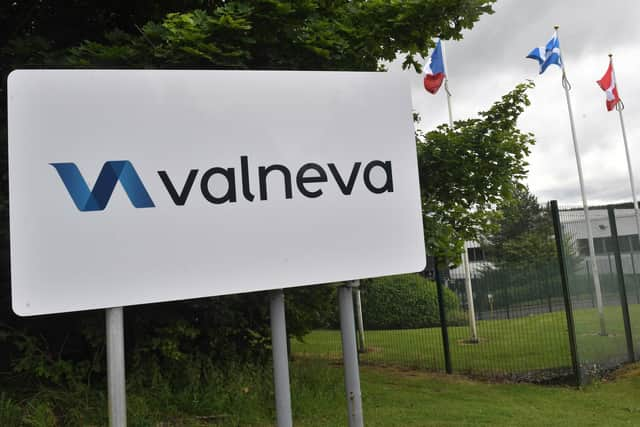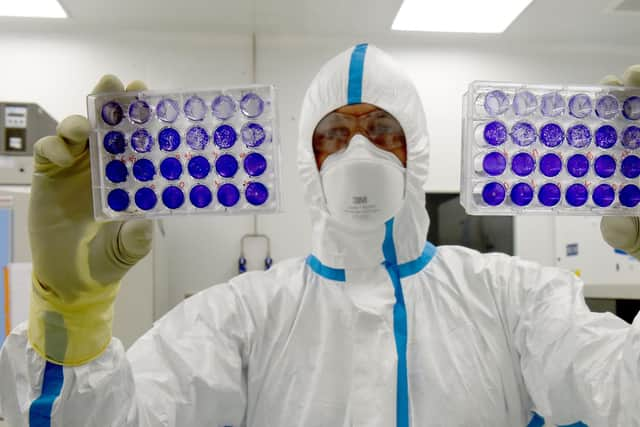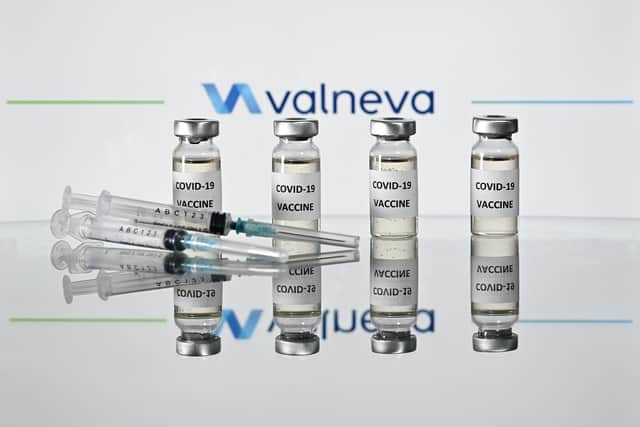Covid-19 'Livingston vaccine' likely to be produced in Scotland for several years
Future manufacturing will depend on how new variants of the Covid-19 virus respond to vaccines and on how long the vaccine will be effective for, site director Frances Muir said.
The team is “extremely proud” to be manufacturing a Covid-19 vaccine in Scotland and to have received an additional order from the UK Government, bringing the total number of doses expected to 100 million.
Advertisement
Hide AdAdvertisement
Hide AdThis is on a par with those ordered from AstraZeneca – a pharmaceutical giant active in more than 60 countries.


Livingston is one of three manufacturing locations of Valneva, with the others in Sweden and Austria, along with offices in France, Canada and the US.
Manufacturing of the Covid-19 vaccine VLA2001 began in Livingston at the end of January. It is expected to be submitted for approval by the Medicines and Healthcare products regulatory agency (MHRA) around July.
This small site on the outskirts of Livingston was chosen to be at the forefront of the fight against Covid-19 because of its history and versatility, said Ms Muir, who has been with Valneva for 18 years.
The team already had the infrastructure and expertise to bring a product from development to delivery, as they had done with commercial product IXIARO, a vaccine for Japanese encephalitis the site has been producing for a decade that is similar to the Covid-19 vaccine.


When a deal was struck to produce a Covid-19 vaccine, Valneva bought the building next door, which is currently being converted to high-level BSL3 (biosafety level three) manufacturing capability.
The company has recruited more than 100 new staff to help deliver on the project and will continue to recruit further in coming months in manufacturing, quality control and support functions.
Staff are currently focused on the initial orders – which are on track to be completed despite the ambitious scale and timeline of the project, Ms Muir said.
Advertisement
Hide AdAdvertisement
Hide AdBut manufacturing of the Covid-19 vaccine will not end after this order is fulfilled.


"We do see production going on for a few years here,” Ms Muir said.
"You have to look at what’s happening with the virus and the variants. We don’t know yet what that means for the continuation of production of the vaccine, so that’s something we will continue to look at and react against.”
Head of manufacturing support Derek Dickson said the Covid-19 vaccines may become regular, as those for seasonal flu.
"The other thing that we need to consider is that there is a lot of talk about how long the vaccine will be effective for,” he said.


"There’s no data available yet on how long people can maintain the antibodies, so there is something in that these vaccines may be like seasonal flu.”
National clinical director Jason Leitch said on Friday that Covid-19 vaccination may become annual in the model of flu vaccination.
"The vaccine we have got just now will probably give some level of protection against new variants, but we will just up it and make it better with those boosters,” he said.
Advertisement
Hide AdAdvertisement
Hide Ad"I don’t know, and nobody does, but if I had to gamble, I would say we're probably having annual Covid-19 vaccines for some time to come.”
This suggests an explanation as to why so many doses have been ordered from Valneva for a vaccine that will not be ready until after – if current targets are met – the majority of the UK population has been given two doses of other vaccines.
Valneva “came a bit late to the game”, Ms Muir said, but will deliver a vaccine that is nonetheless extremely valuable to the fight against Covid-19.
Its product, VLA2001, follows a more “traditional approach” than other candidates, as it is an inactivated whole virus vaccine.
“The virus we produce is inactivated, which means the virus is killed with a chemical and molecules called antigens are introduced into the body, which triggers an immune response," said Ms Muir.
This could make it particularly suitable for those with weaker immune systems.
Ms Muir expects to produce up to five batches of vaccine – five million doses – a week once production ramps up.
The “vast” project has involved almost the whole of Valneva, with collaboration from the sites overseas.
Advertisement
Hide AdAdvertisement
Hide AdThe biggest challenge has been the scale of production, Ms Muir said, with a lot of specialised equipment and associated training needed.
“It’s given us a sense of immense pride in the site, to be part of this programme which at the end of the day will save lives,” she said.
"It’s a lot of hard work, but people are extremely engaged with it.
“Sometimes you just get into the day-to-day grind and you forget how important the job you’re doing is. It’s just fantastic to be part of.”
Staff can see the difference their work is going to make, Mr Dickson added.
“Everybody has got so much energy, and is really, really excited about what we’re doing, and very proud,” said Ms Muir. She added: “We have to have that energy because it’s a really fast project, we have to keep going at a fast pace.”
Ms Muir thanked colleagues abroad for their collaboration and the UK Government for the orders made.
But on a personal note, as a Scot so Scottish she finds herself modifying her accent so non-local colleagues can understand her, she is proud of anything that links the site to Scotland.
Advertisement
Hide AdAdvertisement
Hide Ad“It’s not about publicity, it’s more about recognition,” she said.
"Recognition that here in Scotland we actually do have a BSL3 lab and we’re developing and manufacturing a Covid vaccine.”
A message from the Editor:
Thank you for reading this article. We're more reliant on your support than ever as the shift in consumer habits brought about by coronavirus impacts our advertisers.
If you haven't already, please consider supporting our trusted, fact-checked journalism by taking out a digital subscription.
Comments
Want to join the conversation? Please or to comment on this article.